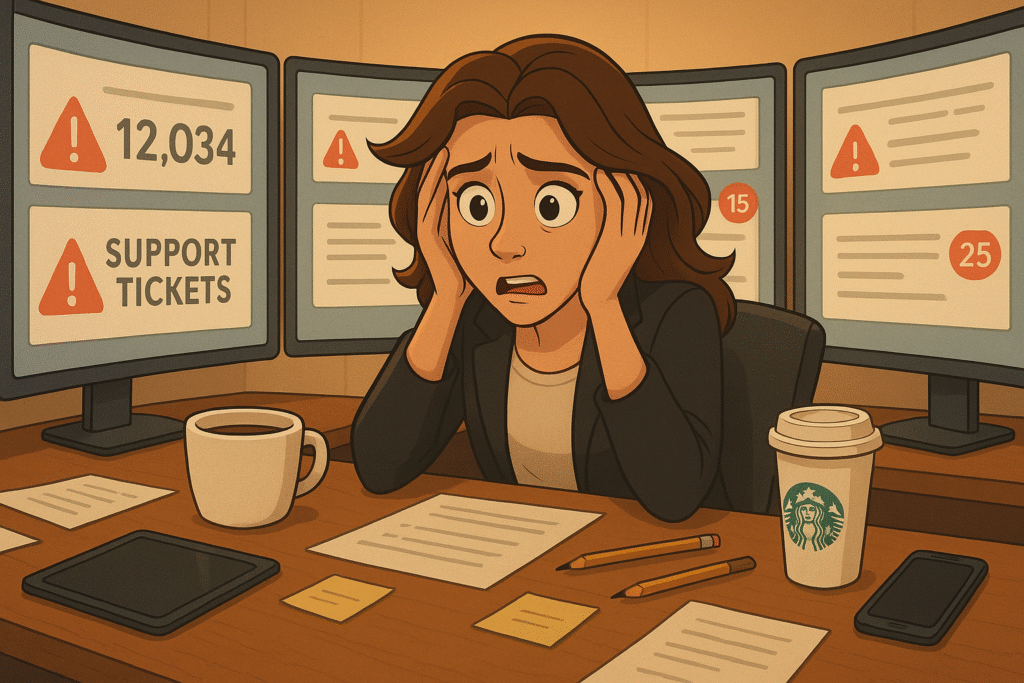
The hidden math that makes rare problems inevitable (and expensive)
Jason Cohen, founder of WP Engine, shared a brutal truth about scaling that most product makers discover too late.
When you have one server, a fatal crash happens maybe once every three years. Annoying, but totally manageable.
When you have 1,000 servers…
You get a fatal crash Daily.
Every.
Single.
Day.
Not because your servers got any worse as you grew. It’s because rare events become mathematically inevitable at scale.
This same principle applies to every aspect of your product business — and yet most founders are completely unprepared for it.
The customer support issue that happens to 0.1% of users…
With 100 customers, you see it twice a year.
With 100,000 customers, it’s happening twice a week.
And that edge case bug that affects “hardly anyone”?
It’s now affecting dozens of people monthly, each one potentially posting furious reviews and demanding refunds.
The problem isn’t only operational — it’s psychological.
As Cohen explains, when issues hit newer customers, they create “bad first impressions” that are much harder to recover from than problems experienced by loyal, long-term users who’ve built up patience.
Plus, the 99.99% of customers who experience no problems never even think to leave positive reviews.
But that 0.01% with issues … they’re on fire to share their frustration online.
Permanently.
In I Need That, I explain how scaling amplifies everything — strengths and weaknesses alike. Most product makers budget for linear growth: 5x customers means 5x costs.
But rare problems scale exponentially, creating downstream consequences that require entirely new systems to manage.
The automation trap makes this worse.
Every founder’s first instinct is “yeah, we’ll just automate everything.”
But you can’t automate empathy, social media crisis management, or the forensic skills needed to solve weird technical problems.
Cohen’s insight reveals why successful companies often seem to have endless customer complaints on social media, while smaller competitors appear problem-free.
It’s not that big companies always get so much worse — it’s that scale makes rare events visible daily!
Product Payoff: Early on, Buffer discovered this pattern when its “simple” social media scheduling tool hit scale. What started as occasional posting delays became DAILY customer service crises as its user base grew.
Instead of just automating the heck out of everything (they did plenty of that too), Buffer invested heavily in transparency tools — real-time status pages, proactive communication, and dedicated support teams for different customer segments. This approach turned scaling challenges into competitive advantages, as customers appreciated the honesty and preparation rather than feeling blindsided by inevitable issues.
Your own scaling prep: Identify your current “rare” problems — the ones that happen maybe once a month and get fixed with a quick manual intervention. These will become daily fires when you hit scale.
Start building systems now to handle them systematically, not reactively.
Budget for specialized teams you don’t need yet: security, customer success, technical specialists, and managers who’ve scaled companies before.
When it comes, the surprise hits way faster than you think.
What “rare” problem in your business would become a nightmare if it happened daily?
Poke that reply arrow and share your scaling reality check.
Or reach out to my team of product growth strategy experts at Graphos Product.
